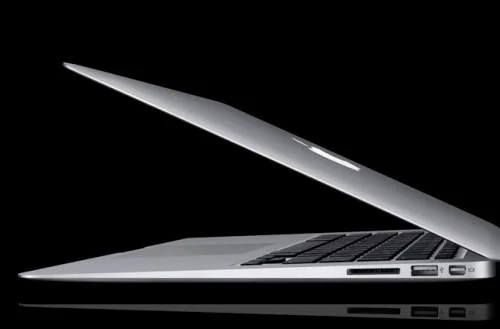A Japanese website claims Apple is testing an ARM-based MacBook Air powered by the same A5 processor as the wildly popular iPad 2.
According to Macotakara, Cupertino and Quanta Computer built a specially designed Thunderbolt-equipped Air to test the low-power chip.

“[The] source who saw live A5 MacBook Air [said the] test machine performed better than expected,” read a translated version of the article quoted by AppleInsider.
Interestingly enough, the report conceded it “wasn’t clear” if the prototype Air was running Apple’s mobile iOS or the standard desktop Mac OS X operating system.
It should be noted that the above-mentioned rumor comes just a few weeks after SemiAccurate’s Charlie Demerjian reported future Apple laptops would be powered by RISC-based ARM chips, rather than Intel x86 processors.
“Apple is moving the laptop line, and presumably desktops too, to ARM based chips as soon as possible… It is a done deal, Intel is out, and Apple chips are in. The only question left is if they will use their own core, a Samsung core, or the generic ARM black box.”
Although many journalists and analysts have expressed skepticism over the possibility of Cupertino ditching x86 architecture for ARM, prominent Silicon Valley chip expert David Kanter believes Apple could indeed be planning an enigmatic hybrid device.
“While Apple will not switch from ARM to x86 in the next couple of years, there could be shades of the truth in the rumors. A more plausible scenario is that Apple is planning some sort of hybrid system,” Kanter wrote on Real World Tech.
“There are a number of ways that putting ARM near a computer could be quite interesting and valuable.For example, Apple could include an ARM core in future notebooks for ‘instant-on’ web browsing while the computer is booting – something done in certain Dell and HP models. An extension of that idea would be an update to OS X with an iOS emulator and maybe a co-processor for future hardware.
“[Remember], unifying Apple’s three major platforms – computers, tablets and phones – would make it far easier for developers to target Apple platforms. In some ways, this might be the most sensible, since expanding the iOS installed base would help Apple create a more attractive market for developers compared to Android and could facilitate tying the iPhone to other Mac products.”






